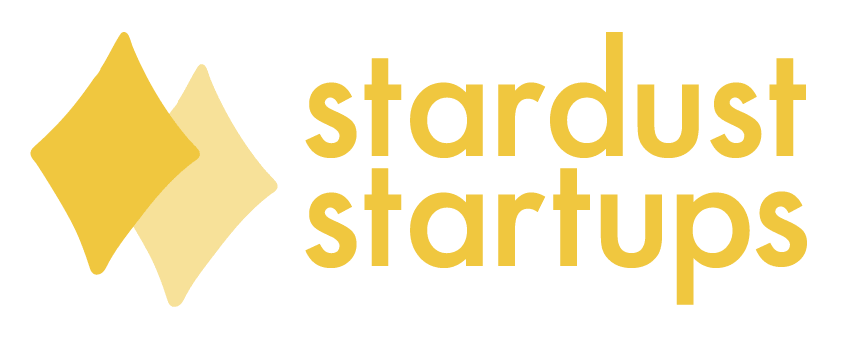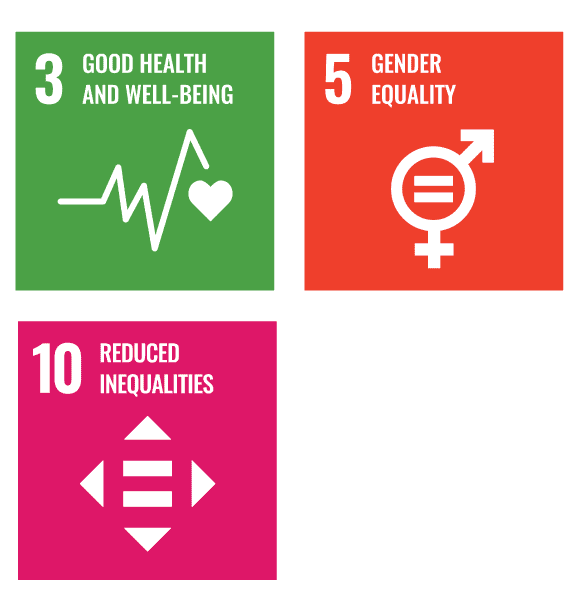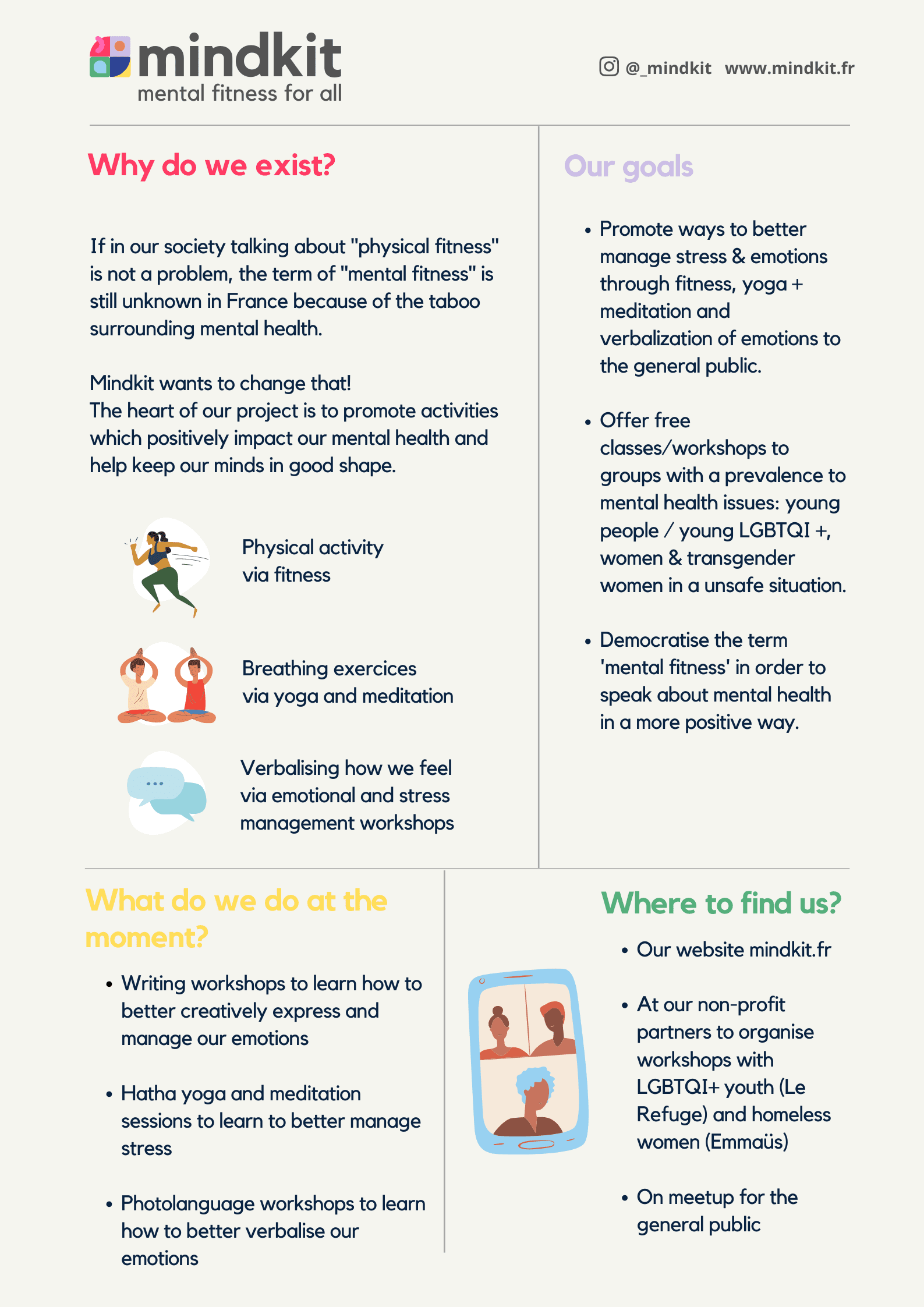Mindkit
Nonprofit Boosting Mental Fitness Through Accessible Workshops and Activities
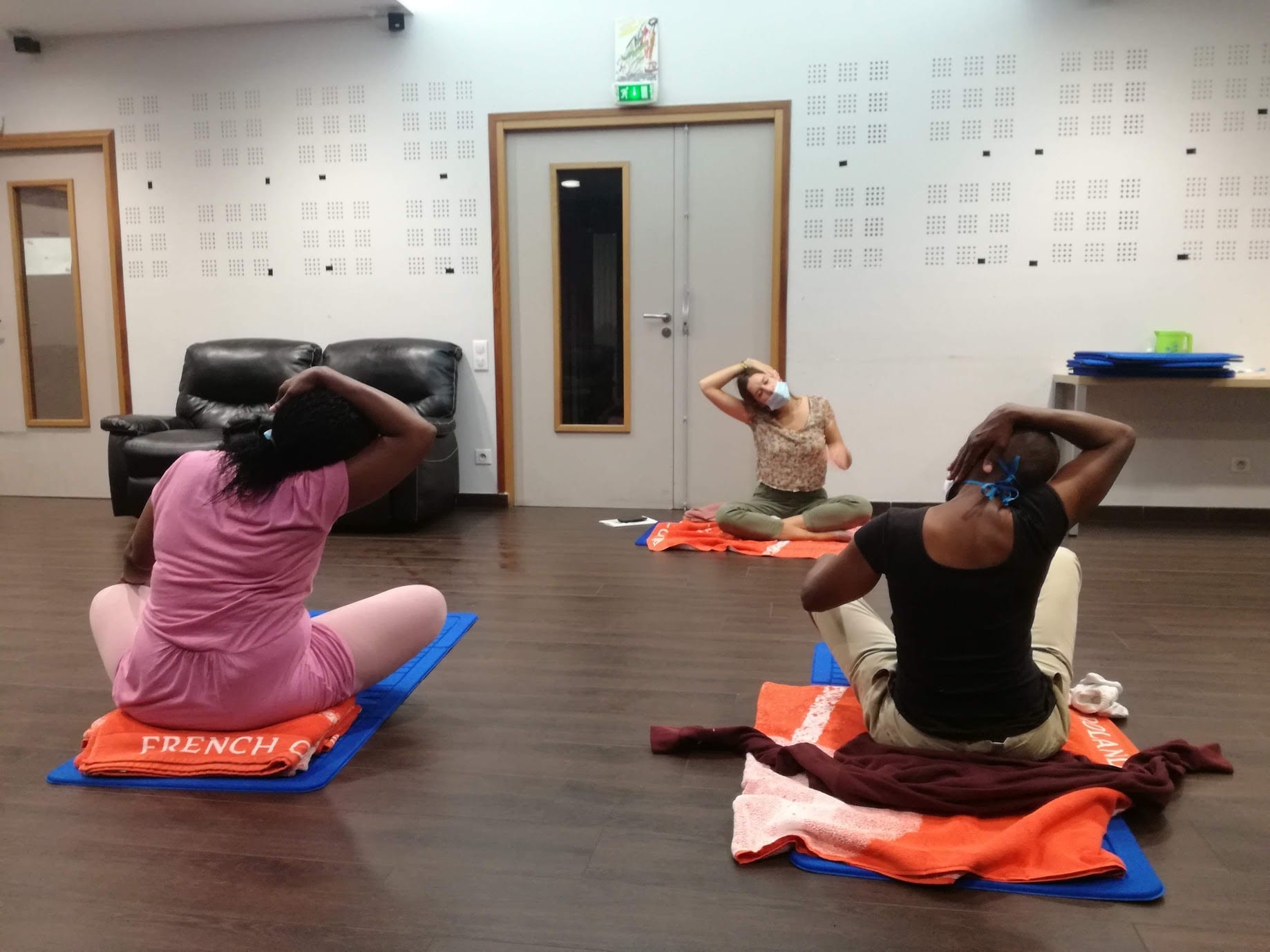
Mindkit is a French non-profit promoting mental fitness and well-being by empowering people—particularly women, young people in difficult situations, and people in the LGBTQ+ community—through activities such as fitness, yoga, meditation, and various stress management workshops. Their aim is to make these activities completely accessible and non-judgemental and end the taboo around the subject of mental health.
Quick facts
Mental health is a taboo subject, not only in France, but in many cultures around the world, and access to mental wellness tools (like therapy or yoga classes) is often limited to clients who can afford them.
- 3 out of 4 French people say they are ill-informed about [mental health].
- Fewer than 1 in 5 adolescents meet the WHO global physical activity recommendations of 60 minutes or more of moderate-to-vigorous physical activity (MVPA) each day.
- In France, more than 1 in 5 women combine a sedentary lifestyle with physical inactivity.
- Within 10 years, the physically active female population has shrunk by a worrying 16%, a drop among women aged 40-54 (-22%).
- 1 in 4 teenagers report feeling nervous, irritable or having difficulties getting to sleep every week.
- Executives are twice as likely (64%) than blue-collar workers (37%) to declare having had a physical or sporting activity during the last twelve months.
- At age 15, girls report poorer mental wellbeing than boys across almost all countries/regions.
- Gay, lesbian, bisexual and questioning youth are more likely to experience depressive symptoms from as young as age 10 and these symptoms persist at least into their early 20s.
- France is the 3rd European nation where employees feel stressed at work on a daily basis, behind Germany (20%) & Poland (25%).
- Teenagers living in families with low incomes, as well as young people with at least one unemployed parent are more likely to develop health problems.
- Almost 6 out of 10 transgender respondents are at risk of poor mental health than their cisgender comparators.
Sources: Oeuvre Falret, WHO, Santé Publique France, University College London, ADP, Transgender Europe
It was just after a burnout that Katherine, the founder of Mindkit, finally realized the importance of taking care of her mental health. Therapy, yoga, and fitness helped her during her journey to feeling better. She quickly understood that as a teenager, and even as an adult, she had had very little awareness about the different therapies or activities that were available for improving mental health. That’s when she asked herself: “How can I do my part to promote mental health wellness so other people can avoid going through what I went through?”
Mindkit aims to combine physical activities with emotional and stress management workshops in order to multiply mental wellness benefits. Think:
- 30-minute cardio class ending with a 15-minute meditation
- Photolanguage session followed by a yoga class
- Writing workshop followed by deep relaxation and self-affirmations
- Stress management session followed by 30 minutes of dance
Did you know?
Thanks to a suggestion during a 2019 focus group aimed at finding new and positive ways to talk about mental health, Mindkit uses the term “mental fitness”—just like how we link “fitness” to physical health, they want to link the term to mental well-being, presenting the subject in an innovative and dynamic way.
Because mental health is so taboo in France, people tend to think that psychotherapy can only benefit people suffering from mental illness. The reality is that therapy is an essential tool in verbalizing everyday emotional discomfort and healing trauma. For Mindkit, it is crucial to not only spread awareness around therapy but also promote the benefits of verbalizing stress triggers through stress/emotional management workshops.
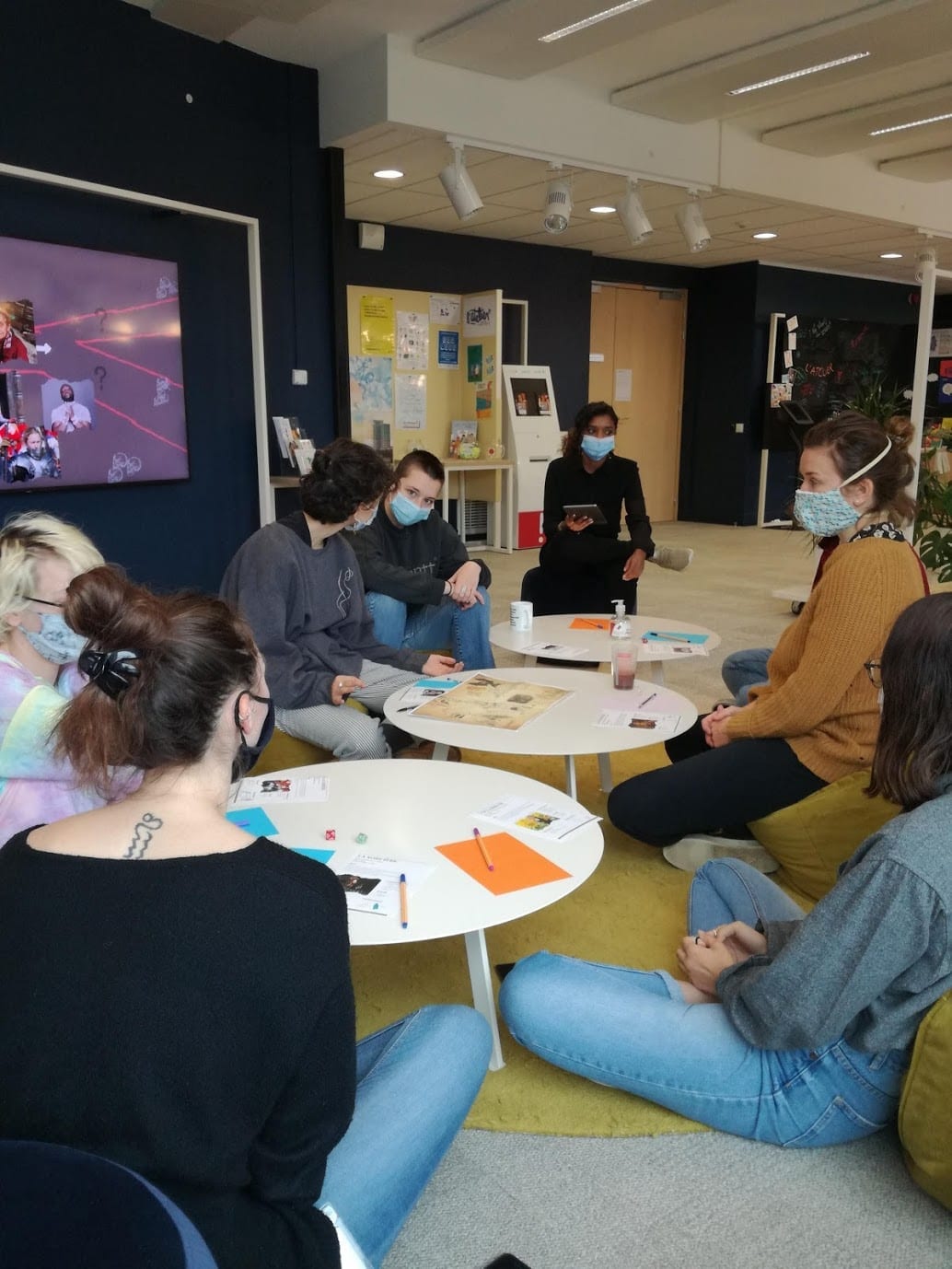
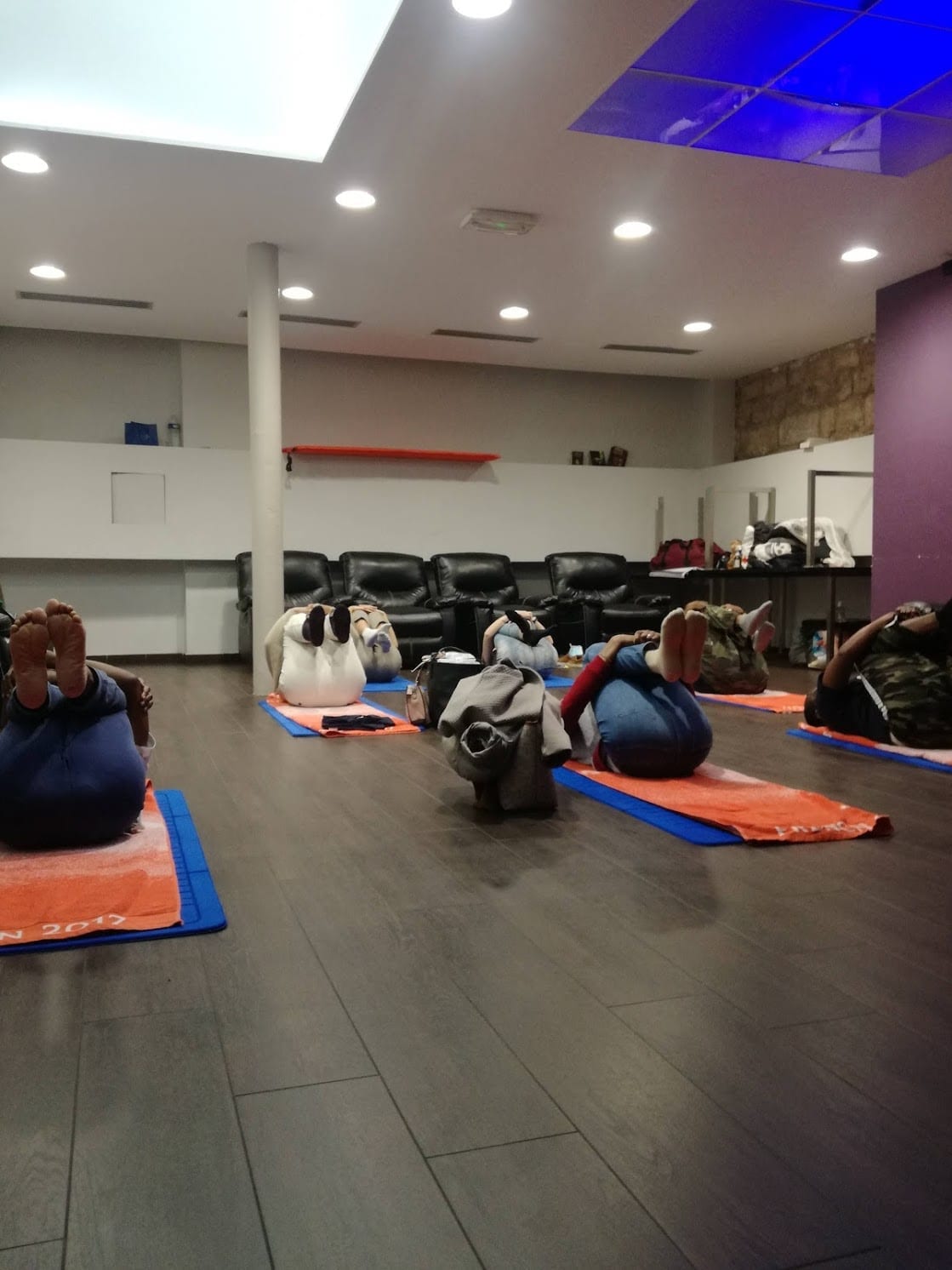
To achieve their goals as a non-profit, Mindkit uses the Theory of Change framework combined with the Design Thinking method in order to assess but also to maximise social impact on their target market. These methods allow them to fully understand their beneficiaries’ needs, test methods and improve.
Since the summer of 2020, Mindkit has offered free workshops and classes to Emmaüs, Crips IdF and Le Refuge, three nonprofits based in Paris. They are working on renting a physical space. Their aim is to create a virtuous cycle where Mindkit would offer services to the general public for a fee that would allow them to pay speakers/teachers and subsidize Mindkit sessions to their non-profits partners.
Mindkit has the potential for global impact. Their messages (promoting the true definition of mental health, breaking the stigma around therapy, and making mental fitness activities accessible to all) are needed all around the world. Their format is easily replicable in other cities—but first Mindkit wants to assess their social impact: what works and what needs to change. Once this is done, they’ll be able to open Mindkit in other cities and grow more meaningful nonprofit partnerships.
The $2,000 micro-grant from Stardust Startups will be used to pay for instructor salaries, rent for indoor classes, digital marketing, and insurance for the non-profit.
